The Royal Rebel Read online
Page 4
“We will win this fight,” Norah told me one evening. “These pompous men cannot stop us.”
“We shall,” I said.
“And we will do whatever it takes to win,” she added.
Norah meant it too. She believed that any action was acceptable. If it meant votes for women, nothing else mattered.
“I will do whatever I can to help,” I replied.
“You’re a princess, Sophia,” said Norah. “With your title, imagine how many other women you could convince!”
“I could try,” I said.
“All those rich women with all that spare cash,” Norah added. “Perfect!”
One afternoon, I stood with my comrades as we sold cakes and homemade jam at the country home of a wealthy family. A new member approached, and Norah grinned.
“Take some jam!” she said to the woman. “Made by the princess herself!”
The new member smiled. “My, what a privilege!” she replied. “Jam made by Queen Victoria’s own goddaughter. I’ll take two!”
As she left, I turned to Norah.
“I didn’t make that jam,” I told her, my voice low. I couldn’t even make a sandwich, so jam was beyond me.
“Shhhh!” replied Norah. “We know that, Sophia, but they do not. It does no harm, and we’ll make more money for the cause.”
Suddenly more new members arrived.
“I hear you make the jam yourself, Your Highness,” said one woman.
I simply smiled and nodded. I felt awful for lying but was too nervous to say anything.
“How delightful!” the woman replied. “I’ll take three pots, if I may?”
Within half an hour, we’d sold out of jam, and Norah was beaming.
“I think you’re going to be a great asset to our cause,” she told me.
“I hope so,” I replied.
I decided I didn’t mind about the jam. It was all for the cause, and I was committed to it. We needed funds if we were going to win our fight. My jam became a huge hit as women flocked to our fundraisers. But after a while, I longed for a bigger role in the WSPU.
“I’d like to do more,” I told Norah one afternoon as we walked around Hampton Court Park.
“More?” she asked. “You’re already a huge hit, Sophia.”
“I see that,” I replied. “But I can be much more useful, given the chance.”
Norah gave me one of her angelic smiles.
“Well, now that you mention it …” she said.
“Yes?” I asked. “What can I do?”
“We’re arranging fundraisers,” Norah told me. “Different to the usual ones. Afternoon and evening social events with wealthy women across London. You would be very useful for those.”
“I raised a lot of money to help the lascars,” I replied. “I’m sure I can do that again.”
“I have no doubt about it,” said Norah. “You’re a celebrity. Everyone will love you.”
I walked back to my apartment in a jolly mood, contented and happy to be part of something that felt like a family. I had a sense of belonging once again.
The fundraisers were called “At Homes” and were hugely successful. Soon, the leader of the WSPU asked to meet me. I was happy to oblige.
Emmeline Pankhurst was honest and straight-talking. I admired that. She hid nothing and always spoke her mind.
“You’re a princess,” Emmeline said on our first meeting.
She had an air of authority. Her gaze was direct, and you could almost feel her passion for the cause. I struggled to maintain eye contact.
“Yes,” I managed to reply.
“Good,” Emmeline said. “Your connections could prove even more useful than they have already.”
“I agree,” I told her, yet some doubt crept into my mind. Were the WSPU simply using my status to get more money?
However, the doubt soon went away. Even if they were using my status to collect funds, I did not mind. After all, I had done the same for the lascars. The cause of women’s rights was more important than my doubts. If being a princess meant more money for us, then so be it.
“Be warned,” Emmeline added. “We will become the most hated women in England. Others will call us rabble-rousers and harridans.”
“Let them,” I said. “The right to vote is worth such insults.”
Our movement grew. Soon, the WSPU were the talk of Britain. Many of us were sent to prison – including some of our most famous comrades, such as Annie Cobden-Sanderson. Norah grew ever more rebellious and determined, and did three spells in jail.
“The situation is getting very serious,” Emmeline said at a small meeting one evening.
“It’s horrendous,” Norah told us. “The conditions are terrible.”
“They should not place our women with the other prisoners,” said Emmeline. “We are not criminals – we should be kept apart from robbers and murderers. We are fighting for our human rights. I will write again to the Prime Minister. Tonight.”
“Do you think we will all end up in prison?” I asked, thinking of the situation in India. The British were ruthless with Indian rebels, sending as many as they could to jail, some in other countries. A few rebels had been executed too.
“They would not dare!” Emmeline snapped. “Let them try!”
“You have nothing to fear, Sophia,” said Norah. “The Prime Minister would never allow you to be jailed. Imagine the uproar here – and in India too.” She grinned.
“I’m not scared of prison,” I replied. “I am ready to sacrifice myself for our cause. Maybe I’ve just been lucky so far?”
“Luck has nothing to do with it,” Emmeline Pankhurst suggested. “They simply cannot place a princess in prison. It would cause a scandal.”
“I wish they would,” I replied. “Imagine the headlines we might gain.”
Being sent to prison would only strengthen my sense of purpose. I would be following in the footsteps of my grandmother, Maharani Jindan. The thought did not worry me.
“The entire world would hear of us if Queen Victoria’s goddaughter was sent to jail,” Emmeline said. “Just imagine.”
CHAPTER 12
I didn’t need to sacrifice myself to get us attention, however. By the middle of 1909, newspapers across Europe and the United States were reporting our deeds. One morning, I read a newspaper over breakfast and learned that one imprisoned comrade had begun a new hunger strike.
Marion Wallace Dunlop was an artist. She was tall and determined, with fire in her eyes and a strong rebellious streak. Marion had been sent to Holloway Prison in London and was refusing to eat anything at all. Suffragettes in prison were treated as common criminals. We were never seen as political prisoners. Marion wanted that to change. We weren’t committing crimes for greed. We were fighting for our basic human right to vote. It wasn’t the same as robbery.
Later that morning, our WSPU branch in Kingston was buzzing with the news about Marion’s hunger strike.
“Her story will be in every newspaper,” Norah told me as we organised leaflets for a fundraising event later that week.
“The papers will only insult us further,” I replied. “They’ll say we are breaking the law.”
“Good,” said Norah. “At least people will hear about what’s happening to us. We should not be treated as common criminals. We are fighting a just cause!”
“Do you believe that ordinary people will care?” I asked.
“I think so,” Norah told me. “Most people believe in fairness.”
“Perhaps the government should take note,” I said.
“The government cares only about the rich,” Norah replied. “And the privileged. Men, and only rich white men at that.”
“My father found that out,” I told her. “It cost him dearly.”
“Yes, I’ve heard the stories about your father,” Norah said. “I would love to hear more one day.”
I spent that afternoon sorting out our WSPU newsletter, “Votes for Women”. It had been redesigned, and
we were eager for people to see it. I also thought about Norah’s words – about what my father had lost, and the terrible state of India under British rule. Norah had been right. The British government ruled for a select group of privileged men. No one else mattered to them.
“Are the newsletters ready?” Norah asked later that evening.
“Yes,” I told her. “The new design is excellent.”
“You know, I worried you might not last in the WSPU,” Norah told me.
“Why?”
“You’re a princess,” said Norah. “I thought you’d be soft and too scared to get your hands dirty.”
“I’m still here,” I replied.
“Yes,” said Norah. “And I’m glad I was wrong. You’re an important part of our movement, Sophia.”
“I’m just pleased that I can help.”
“No, it’s more than that,” Norah told me. “You’re one of us. Family …”
Norah’s words made my heart soar. I was one of them. And I was fully committed to the fight.
Even when that fight meant great danger …
CHAPTER 13
That danger arrived one Friday in autumn 1910. We women had been promised a new law that year, one that would allow some of us to vote. It wasn’t ideal, not being all of us, but it was a start. Yet at the last minute, the Prime Minister betrayed us, and the law wasn’t passed. We were hurt, confused and angry, and decided to march on Parliament – to make the politicians listen to us.
Three hundred of us gathered inside Caxton Hall, and Emmeline Pankhurst was furious.
“How dare they!” she yelled as she spoke to the crowd. “Those despicable scoundrels!”
Emmeline soon whipped us into a frenzy, and I was fuming. The British government had gone too far. I thought of my father, and my family, and all that we had lost. All that India had lost too. The government had betrayed me throughout my life. They’d made me a refugee in my own country. I despised them with every breath I took.
“We shall march in small groups,” Emmeline told us, to get around the public order laws that banned groups of more than twelve. “I shall lead the way. We will not falter, my friends. We will not be turned back. I do not expect anyone to put themselves at risk. I will not force anyone to go with me. I ask for volunteers …”
But there was silence. Until I spoke.
“I will go with you,” I told her.
“Princess Sophia,” Emmeline replied. “An honour.”
Close by, a woman called Elizabeth Garrett Anderson stepped forward, joined by her daughter Louisa. Elizabeth was a legendary figure amongst us – England’s first female doctor and town mayor. Soon other women volunteered – mostly older and experienced comrades. Hertha Ayrton, Dorinda Neligan, Georgina Solomon and Annie Cobden-Sanderson, who was a close friend of Mahatma Gandhi and supported the struggle for Indian independence. The last to step forward was Evelina Haverfield, a fierce and loyal supporter.
I was in a group of nine as we left Caxton Hall, tense and angry but determined. It was cold and wet, the skies a sinister dark grey. Evelina rode her horse behind us, towering and imposing. I felt awed by her confidence, but I held my head high and marched forward.
“We must take care of the others,” Louisa Garrett Anderson said to me. “They are older and frail.”
“Yes,” I told her.
“You are not what I expected, Princess,” Louisa added.
“No?” I replied. “What did you expect?”
“I’m not sure,” Louisa told me. “But not a rebel, that’s for certain …”
I smiled and we walked on. My breath turned to clouds in the cold air, but we huddled together in our groups to keep warm. Our progress was slow but steady.
“We shall make for St Stephen’s Gate,” said Emmeline.
St Stephen’s Gate was the entrance to St Stephen’s Hall inside Parliament.
“Be wary of the police as we draw near,” Elizabeth Garrett Anderson told us. “They will not welcome us.”
We got closer to Parliament, and I noticed more police officers lining our route. They had been joined by crowds of men, and even some American navy types.
“I don’t like the look of this crowd,” said Louisa.
I agreed. They looked like they’d been hired to attack us.
“They seem friendly to me,” Emmeline told us. “They won’t harm us.”
Louisa and I swapped glances. I thought Emmeline was mistaken.
“They are here for something,” I whispered.
“We must watch out for each other,” said Louisa. “Don’t let your guard down for a moment, Princess.”
I held back a rising sense of fear inside. We had every right to march, and these thugs would not stop us.
The police let us reach St Stephen’s Gate, but once there, we were stuck. They formed a line and trapped us. Behind us, more groups of women arrived but couldn’t join us. The atmosphere grew tense – I could hear murmuring amongst the crowds of men. Their faces were tight and menacing. Something was terribly wrong. When Big Ben chimed, all hell broke loose.
Without warning, the police and onlookers began attacking the groups behind us. At first they barged and pushed them, and threw many to the ground.
I could not believe my eyes.
“Dear God!” Louisa screamed.
“This is outrageous!” Emmeline cried out, stepping forward to try to help.
A police officer forced her back, and she nearly fell. I rushed to support her.
“Stay where you are!” an officer bellowed.
We were trapped at St Stephen’s Gate with the police in front of us and Parliament behind us. We could do nothing. We had to stand and watch as our comrades were attacked and beaten. Before long, mounted officers charged with their horses. My fellow suffragettes were tossed and trampled. Those beasts in uniform gave no thought to injury or fatality. They attacked our comrades without mercy.
“We must do something!” I shouted, feeling helpless.
“How?” Louisa replied. “They have planned this, and we are surrounded!”
Suddenly Evelina reared her horse.
“Stand aside, ladies!” she yelled.
Without a thought for her own safety, Evelina charged the police line and it broke. She lashed out with her riding crop and swore at the men. The officers stumbled and fell, causing confusion. Louisa grabbed my arm.
“Go!” she said. “I’ll keep an eye on my mother and the others. Get away, Sophia!”
But I didn’t run. I couldn’t leave my friends behind. Nearby, I spotted a woman being beaten by a police constable. I ran to help her.
“Stop this at once!” I screamed at the man.
I pushed him and slapped his back and neck as he tried to hold the woman to the ground. The police constable lashed out several times, but I did not stop.
“You coward!” I yelled. “You coward!” And at last he let go of the woman and ran off.
“Thank you, Princess,” said the woman as I helped her to her feet.
“Go,” I told her. “Get to safety, and help as many others as you can.”
I turned and ran after the police constable, eager to get his badge number. I would not let him get away with his despicable crime. Men grabbed at me as I passed, bruising my arms in the process. But I didn’t give up. I didn’t stop chasing the constable.
He tried to get lost amongst the crowds of men, but I managed to get close enough to see his badge. He was Constable V700. I repeated his number over and over as he finally disappeared. It no longer mattered that he had darted away. I had his number, and I would report his crime.
I turned back to help others, shocked and angered at the attacks all around me. Everywhere, my fellow women were being beaten by police officers and onlookers. To my left, an elderly woman had fallen. I hurried to help her, walking her past a crowd of jeering thugs to reach a safer spot.
I continued on, helping where I could, until I felt the arm of another police officer on mine.
/> “I am placing you under arrest!” he yelled.
I did not complain or try to run.
“Very well,” I told the police officer. “Do what you must.”
He led me to a waiting police wagon, and its horses reared up. I flinched a little, and the officer began to laugh.
“Not so brave now then, Miss?” he asked.
I glared at him.
“It’s Princess,” I replied.
The officer looked shocked but said nothing more. I climbed aboard the police wagon, joining the other women who’d been arrested for protesting. They transported us to Bow Street police station in the East End of London. It was chaotic inside. Fellow suffragettes stood or sat anywhere they could find space, looking battered and bruised. There must have been a hundred women. Many of them screamed and yelled at the police officers. The officers looked shocked and weary. When it was my turn to be processed at the desk, the officer looked surprised. He seemed to recognise me.
“Name,” he said, not looking me in the eyes.
“Princess Duleep Singh,” I replied firmly. “Of Hampton Court.”
I expected the officer to challenge my statement, but he simply made a note of my name. Many of the other women gave false names. I refused to.
“You are charged with obstructing the police in their duties,” the officer said. “You are bailed and to return to Bow Street Magistrates Court in the morning.”
“Thank you,” I told him.
The officer finally looked straight at me.
“You should know better,” he said, “being a princess and all.”
“No,” I replied. “You and your fellow officers should know better. Good day to you.”
I returned to Bow Street the following morning, but all charges had been dropped.
“They do not want us to give full statements,” Emmeline told me later that day. “They don’t want people to know what happened yesterday.”

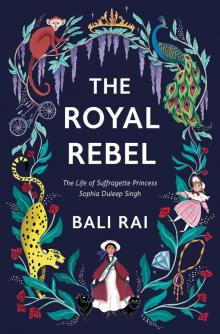 The Royal Rebel
The Royal Rebel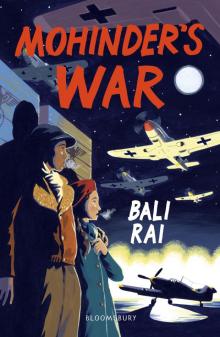 Mohinder's War
Mohinder's War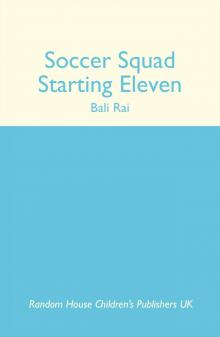 Starting Eleven
Starting Eleven Glory!
Glory!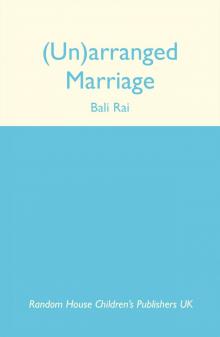 (Un)arranged Marriage
(Un)arranged Marriage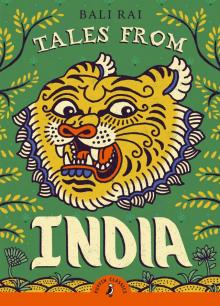 Tales from India
Tales from India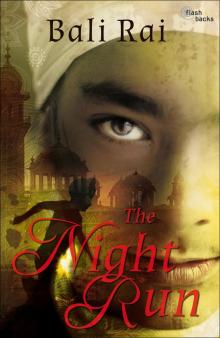 The Night Run
The Night Run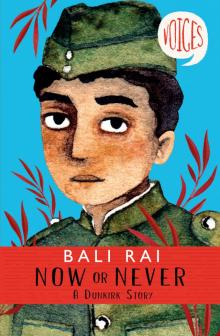 Voices: Now or Never
Voices: Now or Never Rani and Sukh
Rani and Sukh Stars!
Stars!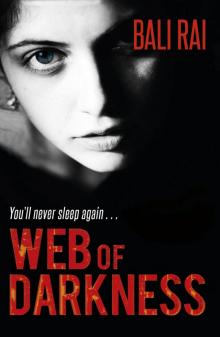 Web of Darkness
Web of Darkness The Crew
The Crew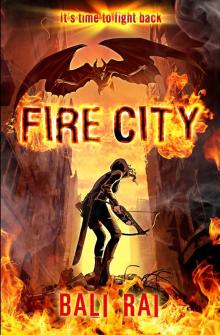 Fire City
Fire City The Last Taboo
The Last Taboo